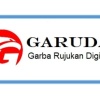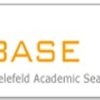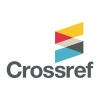Analisis self-confidence terhadap hasil belajar matematika siswa SMK
Abstract
Full Text:
PDFReferences
Achdiyat, M., & Lestari, K. D. (2016). Prestasi Belajar Matematika Ditinjau dari Kepercayaan Diri dan Keaktifan Siswa di Kelas. Formatif: Jurnal Ilmiah Pendidikan MIPA, 6(1), 50–61. https://doi.org/10.30998/formatif.v6i1.752
Agustyaningrum, N., & Suryantini, S. (2016). Dengan Hasil Belajar Matematika Siswa Kelas Viii Smp N 27 Batam. Jurnal Ilmiah Pendidikan Matematika, 1(2), 158–164.
Dewi, P. S. I. Y., Kurniati, N., & Wahidaturrahmi, W. (2021). Pengaruh Kepercayaan Diri dan Kemampuan Komunikasi Matematika Terhadap Hasil Belajar Matematika Siswa. Griya Journal of Mathematics Education and Application, 1(2), 122–131. https://doi.org/10.29303/griya.v1i2.41
Fardani, Z., Surya, E., & Mulyono. (2021). Analisis Kepercayaan Diri (Self-Confidence) Siswa Dalam Pembelajaran Matematika Melalui Model Problem Based Learning. Paradikma: Jurnal Pendidikan Matematika, 14(1), 39–51. https://doi.org/10.24114/paradikma.v14i1.24809
Hair Jr, J. F., Hult, G. T. M., Ringle, C., & Sarstedt, M. (2014). A primer on partial least squares structural equation modeling (PLS-SEM). Sage Publications.
Hasan, I., & Permana, B. (2022). Tools of Knowledge Sharing Dalam Kebijakan Teknologi E-Learning: Studi Kasus Tingkat Penerimaan Teknologi Pada Poltek Stia Lan Bandung. Kebijakan: Jurnal Ilmu Administrasi, 13(Vol. 13 No. 2, Juni 2022), 154–170. https://doi.org/10.23969/kebijakan.v13i2.5426
Putri, W. E., Zuzano, F., & Khairudin. (2013). Pengaruh Kepercayaan Diri Siswa Dalam Belajar Matematika Terhadap Hasil Belajar Matematika Siswa Kelas VIII SMPN 1 Tilatang Kamang. Abstract of Undergraduate, Faculty of …, 1–8.
Setyowati, D., & Widana, I. W. (2016). Pengaruh minat, kepercayaan diri, dan kreativitas belajar terhadap hasil belajar matematika. Jurnal Emasains, V No. 1, 66–72.
DOI: http://dx.doi.org/10.48181/tirtamath.v4i2.18771
Refbacks
- There are currently no refbacks.
Copyright (c) 2023 TIRTAMATH: Jurnal Penelitian dan Pengajaran Matematika
Ciptaan disebarluaskan di bawah Lisensi Creative Commons Atribusi 4.0 Internasional .
Tirtamath: Jurnal Penelitian dan Pengajaran Matematika. Jurnal ini diterbitkan oleh Program Studi Magister Pendidikan Matematika Universitas Sultan Ageng Tirtayasa (cetak) dan Jurnal Untirta (eprint).
Alamat Penerbit: Program Studi Magister Pendidikan Matematika Kampus FKIP Untirta Jl. Ciwaru Raya, Cipare, Kec. Serang, Kota Serang, Banten 42117, Email: [email protected] |Klik untuk mengakses: Tirtamath: Jurnal Penelitian dan Pengajaran Matematika






